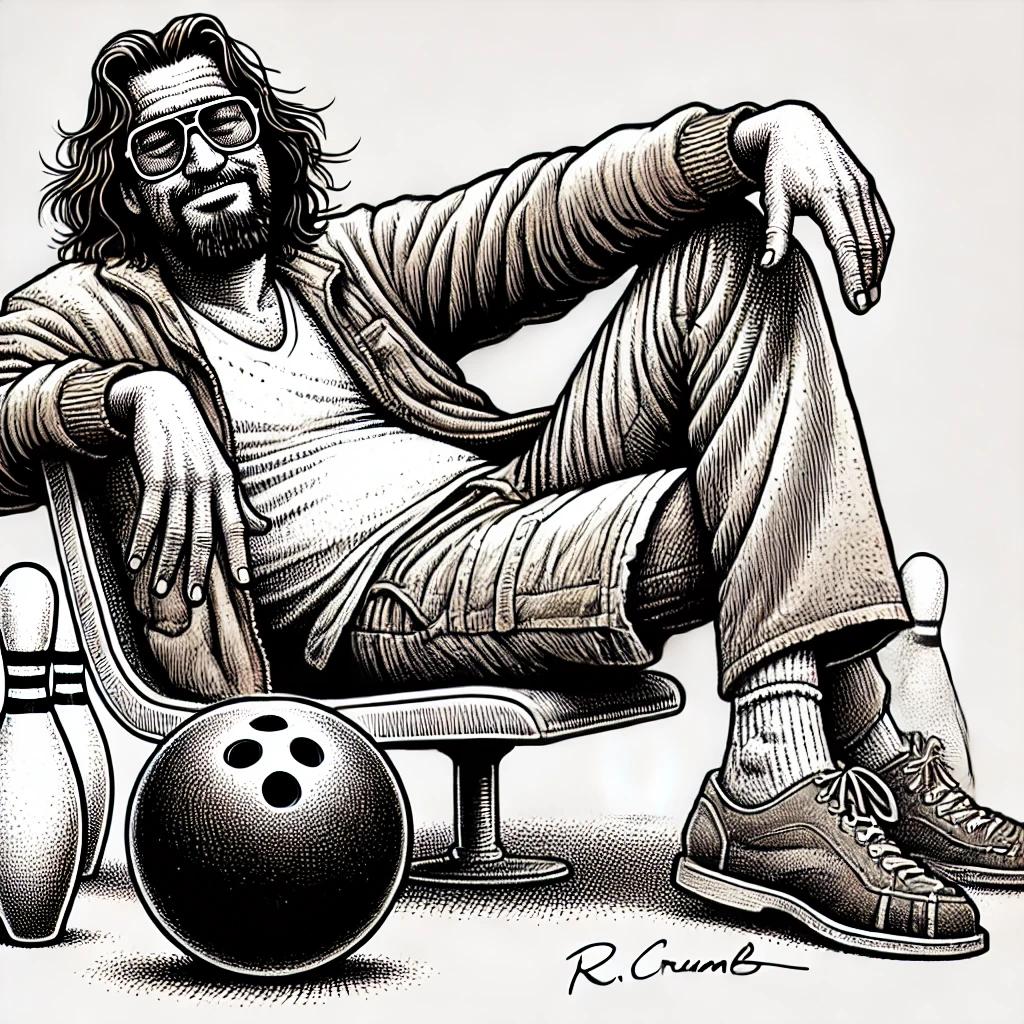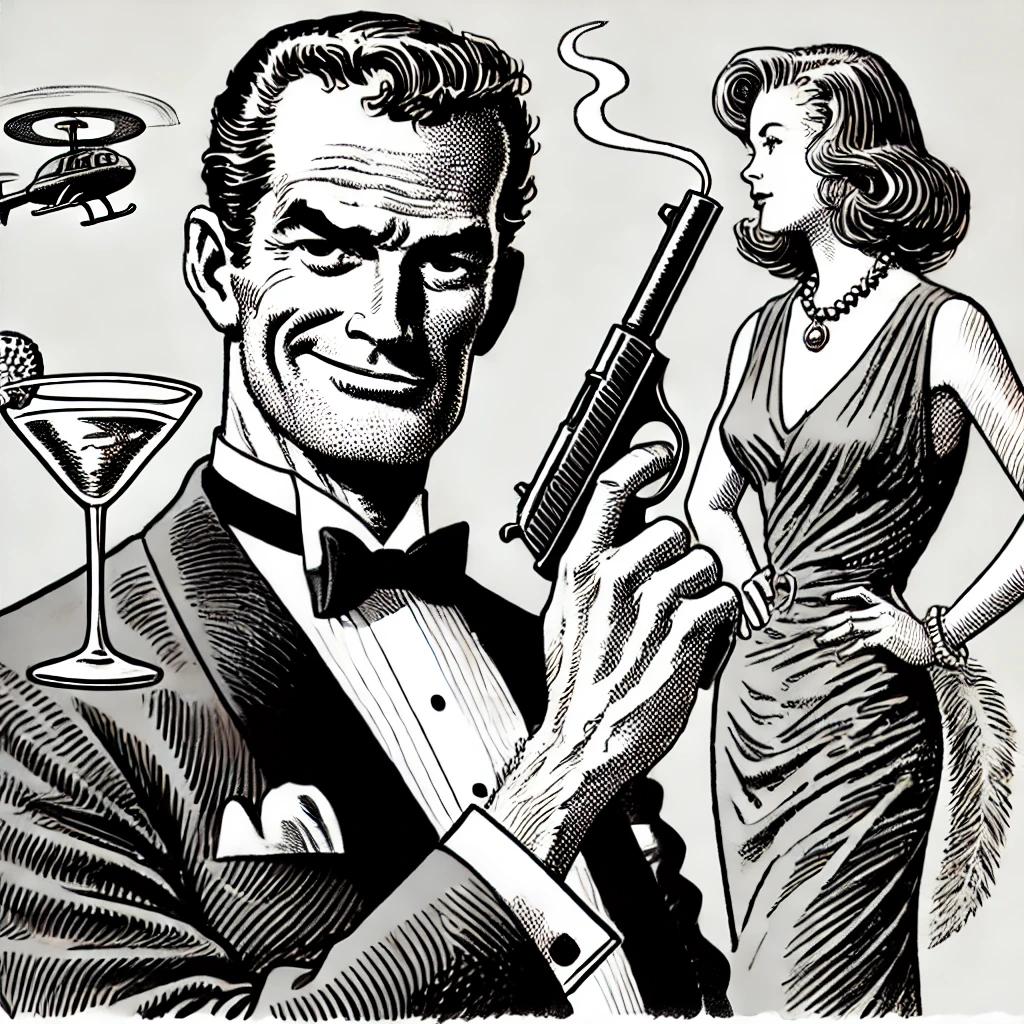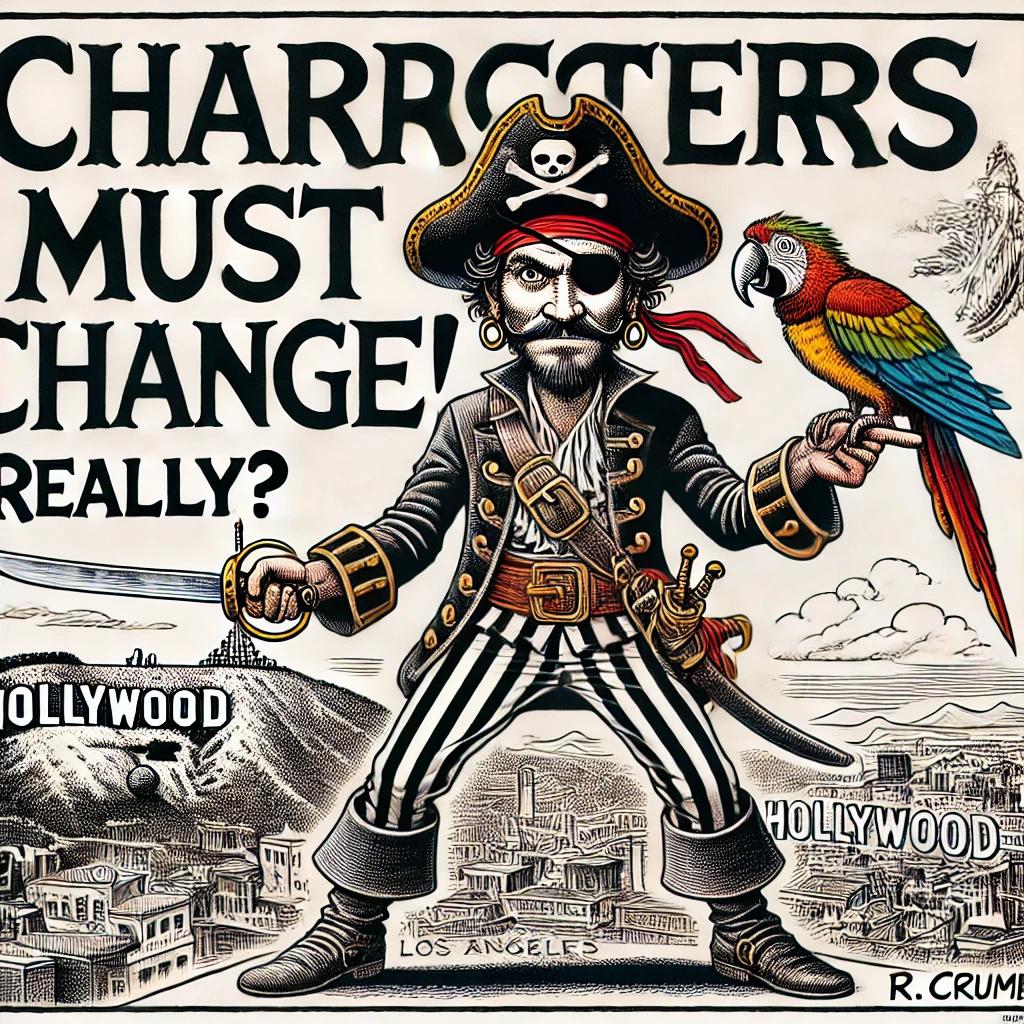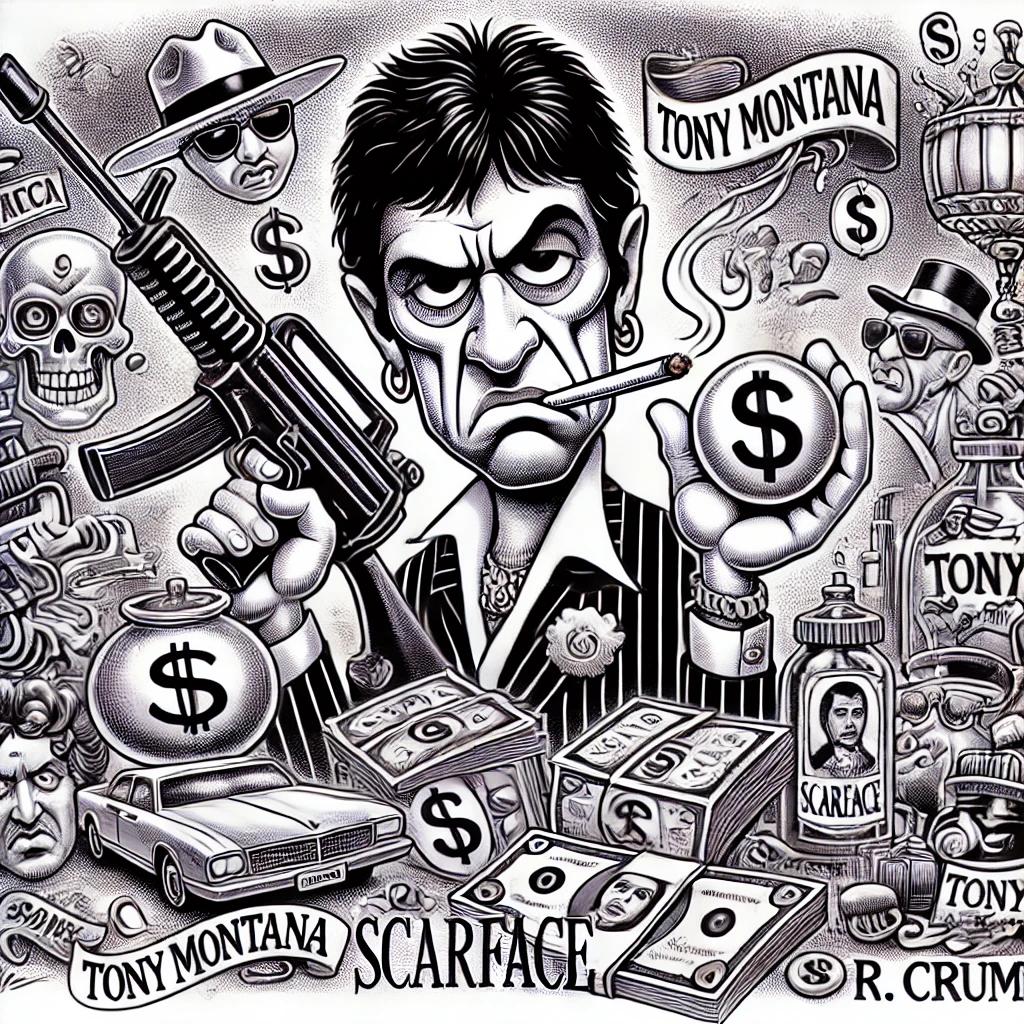Seven Iconic Characters Who Don’t Learn a Damn Thing
In screenwriting circles, we’re bombarded with the gospel of character arcs. A to Z growth. Transformation. The Hero’s Journey. Where’s the change? But let’s face it: sometimes, a character’s resistance to change is what makes them unforgettable. Not every iconic character learns a lesson, undergoes profound growth, or emerges as a better person—and audiences love them anyway.
Generally speaking, if they don’t change within, then expect their world to change.
Here’s seven iconic characters who stayed stubbornly true to themselves, proving that sometimes, a lack of growth is exactly what we crave.
- The Dude (The Big Lebowski)
Jeffrey Lebowski, aka “The Dude,” is the poster child for anti-arcs. He spends The Big Lebowski getting pulled into a bizarre series of events beyond his control, but he never wavers from his laid-back, “whatever, man” attitude. Kidnappings, threats, and bowling tournaments can’t change him; he remains The Dude, abiding through it all. His refusal to adapt to society’s expectations is what makes him resonate. It’s a reminder that not everyone needs to be a hero—some can just… abide.
Takeaway: The Dude shows us that character consistency can be just as compelling as character growth. Sometimes, audiences just want to see someone stay true to their quirks, flaws, and worldview.
2. Ferris Bueller (Ferris Bueller’s Day Off)
Ferris Bueller is a schemer, a slacker, and an eternal high school legend. Over the course of one outrageous day off, he evades his principal, avoids responsibilities, and never faces any real consequences. He doesn’t learn a lesson, apologize, or regret his behavior. He’s a static character, breezing through the plot without a single moment of self-reflection. And we love him for it. Ferris’ lack of growth embodies a certain wish-fulfillment fantasy: that maybe, sometimes, life can just be fun without strings attached.
Takeaway: Ferris proves that sometimes, audiences just want a character who lives in the moment without learning some grand life lesson.
- Dr. Richard Kimble (The Fugitive)
In The Fugitive, Harrison Ford’s Dr. Richard Kimble doesn’t change in any fundamental way. He starts as a good guy—a successful doctor and a devoted husband falsely accused of murder—and he ends as a good guy, having cleared his name and uncovered his wife’s real killer. Sure, he learns who killed his wife, but the core of his character remains unchanged. Kimble is a rare protagonist whose steadfastness and lack of transformation make him compelling.
Takeaway: Kimble reminds us that sometimes, audiences root for a character not because they change, but because they endure.
4. James Bond (Various)
James Bond is the eternal spy, the epitome of suave, and one of the most iconic unchanged characters in film. Across decades, Bond dodges bullets, seduces allies and enemies alike, and downs vodka martinis. He doesn’t grow. He doesn’t retire. He doesn’t change. Sure, we get hints of his past, and sometimes he faces emotional setbacks, but by the next movie, he’s back to the same old Bond, with barely a scratch on his persona. And audiences don’t just accept it; they expect it.
Takeaway: Bond’s unchanging nature is a staple of his appeal. When audiences sign up for a Bond movie, they know exactly what they’re getting—and they wouldn’t want it any other way.
- Jules Winnfield (Pulp Fiction)
Yes, Jules Winnfield quotes the Bible, contemplates his purpose, and considers a new path by the end of Pulp Fiction. But what makes him unforgettable is his unapologetic, larger-than-life persona throughout most of the film. He doesn’t suddenly become a softie or reject his violent past; he’s still the badass hitman we meet at the start. His so-called “transformation” is more of an ambiguous possibility than a clear-cut arc, leaving us wondering if he’s really changed at all.
Takeaway: Tarantino uses Jules’ potential arc to keep audiences on their toes, making him memorable not for his change, but for the fact that he’s always been a compelling, intense character.
6. Captain Jack Sparrow (Pirates of the Caribbean)
Captain Jack Sparrow is one of those rare characters who can take audiences through multiple films without evolving much at all. He’s a pirate, a trickster, and a legend in his own mind, consistently staying true to his chaotic, unpredictable nature. Sure, he may join a few causes, dodge death, and engage in countless adventures, but he’s always Captain Jack—stumbling, scheming, and slurring his way through. He doesn’t become a hero or renounce piracy; he’s unapologetically himself from start to finish.
Takeaway: Jack Sparrow’s charm lies in his eccentric, unchanging personality. Audiences keep coming back for more of him, not because he grows, but because he stays perfectly in character.
- Tony Montana (Scarface)
Tony Montana might be the most iconic example of a character who doesn’t grow or change. In Scarface, Tony begins as a ruthless killer with big ambitions, and by the end, he’s still a ruthless killer—just with more money, power, and an infamous cocaine habit. He rises from a nobody to the top cocaine dealer in the U.S., but his violent, cutthroat nature remains the same. Tony’s static character is exactly what makes him both fascinating and tragic.
Takeaway: Tony Montana shows that a character can become larger-than-life without personal transformation. His downfall is rooted in his unchanging nature, and that’s what makes his story memorable.
Final Thoughts: Do Characters Really Need to Change?
Sometimes, it’s refreshing to watch a character who doesn’t “learn a lesson.” In an age where transformation is a storytelling staple, characters like The Dude, Bond, and Ferris remind us that some people don’t need to change to be memorable. They break the mold by staying true to their essence, capturing our hearts without a single arc.
So, the next time someone tells you that your character must grow, remember: a lack of change can be just as powerful.





